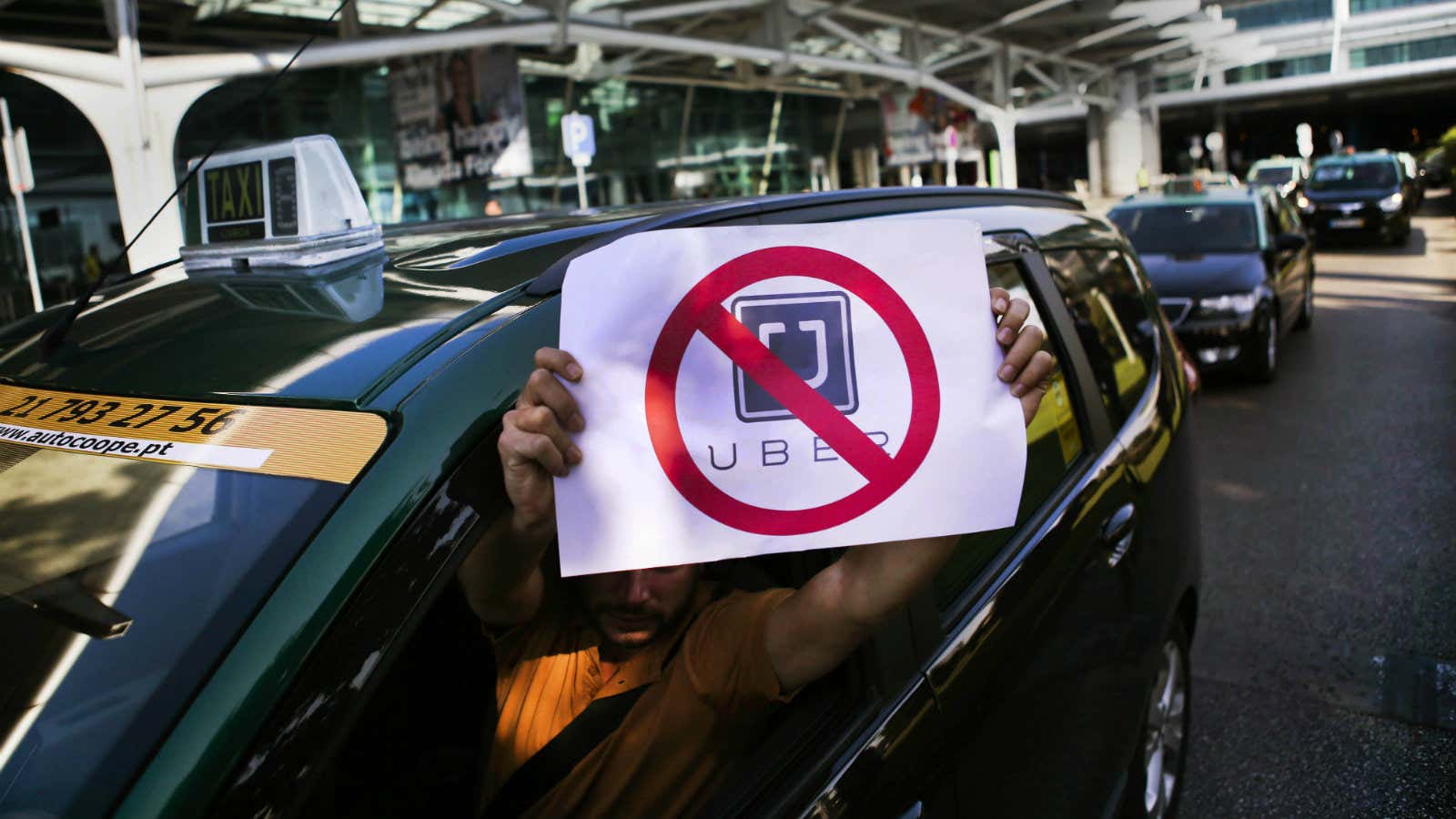In a move that might hit Uber’s business in Asia and the US, four of the ride-sharing service’s biggest competitors—Lyft, Ola, Didi Kuaidi, and GrabTaxi—have entered into a partnership. Starting next year, the four companies will allow users to book cabs from each other’s apps in all the regions where they operate.
Ola operates in India, Didi Kuaidi in China and Lyft in the US. GrabTaxi has a presence across Malaysia, Singapore, Indonesia, Philippines, Vietnam, and Thailand.
“Together, these companies now cover nearly all of southeast Asia, India, China and the US, reaching nearly 50% of the world’s population,” the four companies said in a joint press release. “Joint partner products will start rolling out in Q1 2016 (January-March).” Lyft and Didi Kuaidi had already announced a ridesharing partnership in September.
Under the new alliance, the companies plan to share technology, local market knowledge, and business resources. “Each country will handle mapping, routing, and payments through a secure API,” the release said.
While this appears to be a landmark partnership in the transportation technology startup space, execution of the ridesharing agreement will be key, particularly considering the volatile business environment in which these fast-growing young companies operate.
But one thing is certain: This partnership strengthens the anti-Uber alliance in Asia significantly.
San Francisco-headquartered Uber is the largest mobile app-based transportation company in the world in terms of both valuation and network. The company is valued at over $50 billion. It operates in 64 countries and lets users book cabs across all of those through a single app.
Here’s how Uber’s valuation compares with competitors:
However, Uber is not necessarily dominant everywhere it operates. For example, in India, Uber is available in 22 cities but rival Ola has a presence across 102 cities. In China, Uber can be hailed in 15 cities, while Didi Kuaidi is available in over 300.
Even as Uber has rapidly expanded into new countries, its drive in Asia has been an uphill one. Quartz reported in September that a group of investors—including Tiger Global, Softbank and Coatue Management—is infusing Uber’s biggest competitors in Asia with new funds. These include Bengaluru-based Ola, Beijing-based Didi Kuaidi, and Kuala Lumpur-based GrabTaxi. The same investors have also funded Lyft—Uber’s main US competitor. Collectively, the international anti-Uber alliance has raised over $7 billion—about 70% of Uber’s total funding received to date.
Ola, Didi Kuaidi, GrabTaxi, and Lyft have individually given tough competition to Uber in their respective territories. Now, as they join forces, the ride-sharing sector’s biggest player may have reason to worry.
